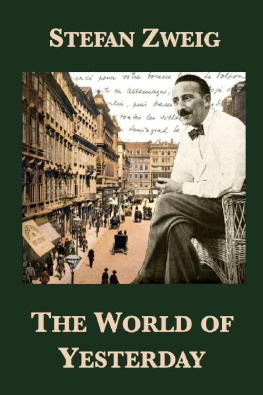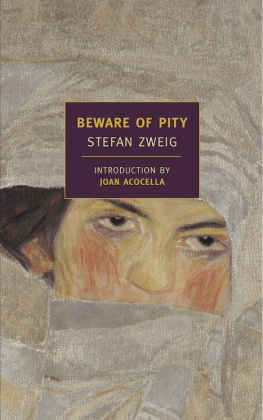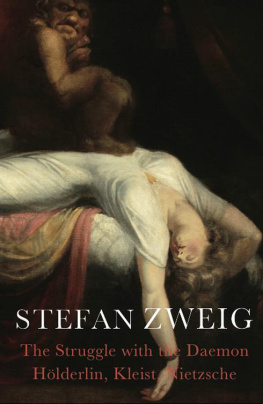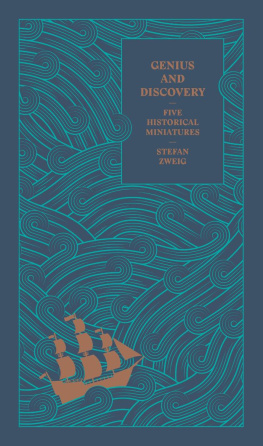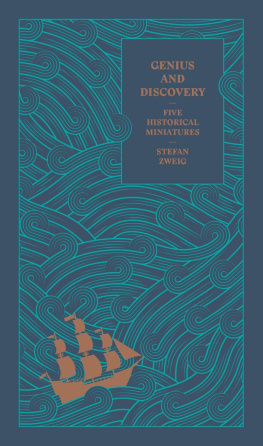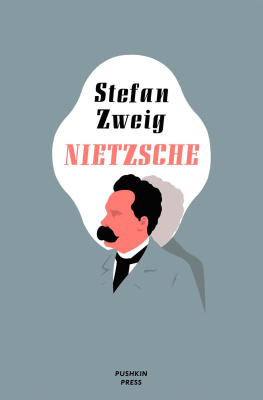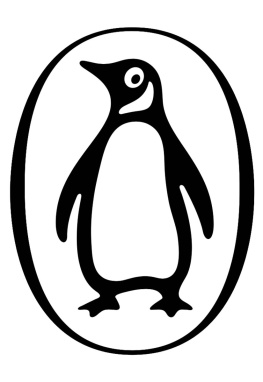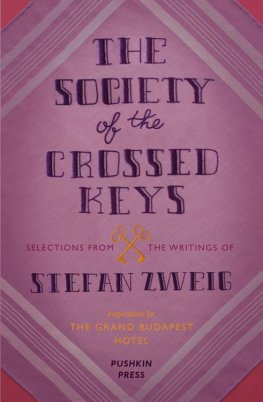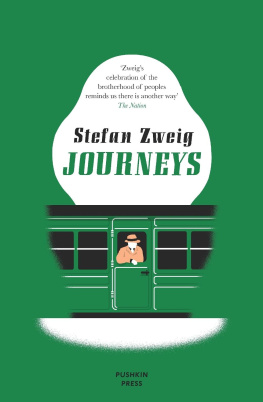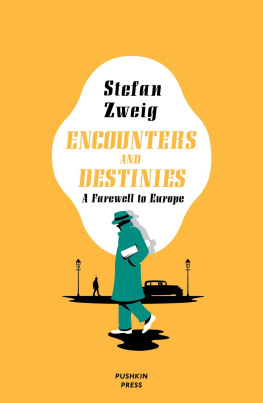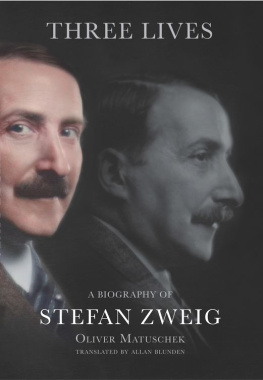The World of Yesterday
by Stefan Zweig
Translated from the German by
Benjamin W. Huebsch and Helmut Ripperger
Introduction by Harry Zohn
Published by Plunkett Lake Press, September 2011
www.plunkettlakepress.com
Williams Verlag AG
translation 1943 by The Viking Press, Inc.
This Plunkett Lake Press eBook is produced by arrangement with Viking, an imprint of Penguin Publishing Group, a division of Penguin Random House LLC.
Introduction reproduced by permission of the University of Nebraska Press. 1964 University of Nebraska Press.
Bibliography Randolph J. Klawiter
Cover art: Susan Erony
~ Other eBooks from Plunkett Lake Press ~
Also by Stefan Zweig
Adepts in Self-Portraiture: Casanova, Stendhal, Tolstoy
Amerigo: A Comedy of Errors in History
Balzac
Dostoevsky by Zweig
Erasmus of Rotterdam
Freud by Zweig
Joseph Fouch : Portrait of a Politician
Marie Antoinette: The Portrait of an Average Woman
Mary Stuart
Mental Healers: Franz Anton Mesmer, Mary Baker Eddy, Sigmund Freud
The Right to Heresy: Castellio Against Calvin
The Struggle with the Daemon: H lderlin, Kleist, Nietzsche
Three Masters: Balzac, Dickens, Dostoevsky
By Friderike Zweig
Married to Stefan Zweig
By Jean-Denis Bredin
The Affair: The Case of Alfred Dreyfus
By David C. Cassidy
J. Robert Oppenheimer and the American Century
By Lucy Dawidowicz
From That Place and Time: A Memoir, 1938-1947
By Inge Deutschkron
Outcast: A Jewish Girl in Wartime Berlin
By Abba Eban
An Autobiography
By Amos Elon
Founder: A Portrait of the First Rothschild and His Time
Herzl
Jerusalem: City of Mirrors
The Israelis: Founders and Sons
By Helen Epstein
Children of the Holocaust
Joe Papp: An American Life
Music Talks: The Lives of Classical Musicians
Where She Came From: A Daughter s Search for Her Mother s History
By Sebastian Haffner
Defying Hitler: A Memoir
Failure of a Revolution: Germany 1918-1919
Germany: Jekyll and Hyde
The Ailing Empire: Germany from Bismarck to Hitler
The Meaning of Hitler
The Rise and Fall of Prussia
By Eva Hoffman
Lost in Translation
By Varian Fry
Surrender on Demand
By Alexander L. George and Juliette L. George
Woodrow Wilson and Colonel House: A Personality Study
By Ernest Jones
The Life and Work of Sigmund Freud
By Peter Stephan Jungk
Franz Werfel: A Life in Prague, Vienna, and Hollywood
By Shmuel Katz
Lone Wolf: A Biography of Vladimir (Ze ev) Jabotinsky
By Egon Erwin Kisch
Sensation Fair: Tales of Prague
By Heda Margolius Kov ly
Under A Cruel Star: A Life in Prague, 1941-1968
By Peter Kurth
American Cassandra: The Life of Dorothy Thompson
By Melita Maschmann
Account Rendered: A Dossier on my Former Self
By Alpheus Thomas Mason
Brandeis: A Free Man s Life
By Dietrich Stoltzenberg
Fritz Haber: Chemist, Nobel Laureate, German, Jew
By Chaim Weizmann
Trial and Error: The Autobiography of Chaim Weizmann
By Robert S. Wistrich
The Jews of Vienna in the Age of Franz Joseph
For more information, visit www.plunkettlakepress.com
~ CONTENTS ~
~ Introduction by Harry Zohn ~
Three Lives was Stefan Zweigs working title for his autobiography in which he took one last, long, nostalgic look at the world of yesterday to whose culture he had made a significant contribution. At the age of sixty the distinguished Austrian man of letters felt that he had lived three lives in three different ages: the golden world of security before the First World War, the turbulent yet fruitful decade and a half that followed in its wake, and the Hitler era up to the outbreak of the Second World War, when Zweigs story ends. Too exhausted to start a fourth, Zweig took his life in Brazil soon after completing his autobiography, at a time when the prospects for the realization of all he had ever striven for looked particularly bleak. Three Lives would have been thoroughly in keeping with the master psychologists penchant for writing biographical triptychs: the stories of three masters of prose, three adepts at self-portraiture, three demon-driven poets and philosophers, three mental healers. But with characteristic self-abnegation Zweig eventually decided to shift the emphasis from his lives to his times, to memorialize the world of yesterday, subtitling his book in the original German memoirs of a European.
The World of Yesterday was not intended as Zweigs literary testament, although today we may read it as a skillful summation of an era as seen through the eyes of one of its outstanding citizens. Even in happier years Zweig had often mentioned his plans for such a book, originally envisaged as a chronicle of the cultural currents of his age, with the First World War as a focal point. He intended this book as a bridge between the generations, one that would tell young people about a world which had already become historical, legendary, largely incomprehensible to them. In a letter to his British friend Joseph Leftwich, Zweig expressed his intention of writing the history of our Vienna, our culture, our freedom. Our youth has already become history, never to return, he wrote; the next years will be full of confusion, hatred, bitterness; for us the best is over, and our only task is to testify truthfully for the day that will come. He was convinced so he told Robert van Gelder, who interviewed him in 1940 that no other times could equal the changes that the generation then of middle age had seen. Zweig felt duty-bound to bear witness; he knew that he had an urgent and incredible tale to tell, and he hastened to get this memento of an age down on paper while he was still able to do so. For he felt that in the turbulence of a war-torn world a writer lacked peace of mind and concentration, that writing was the only therapy vouchsafed him.
The World of Yesterday is not a conventional autobiography, for it is a mirror of an age rather than of a life. The real reason for this is not the fact that Zweig wrote the book under unfavorable conditions, in an elegiac mood, at a time of homeless wandering when he lacked the books, notes, diaries, letters, and other aids to recollection that most autobiographers take for granted. Zweig was far too shy and modest a man to want to write the story of his life, although he often encouraged others to do so, particularly in times when truth was truly stranger than fiction.
The international renown which his books brought him his works appeared in thirty languages, and at one time he was the most translated writer in the world made Zweig a public figure, but he yearned for personal anonymity and had an almost pathological aversion to lecture tours on which he had to sing, as he put it. Although he was charmed by the power of the written word and regarded its worldwide dissemination as a boon, he strove to keep his own personality inviolate amidst the multifarious temptations and obligations besetting an international celebrity. Thus The World of Yesterday is as self-effacing a document as one is likely to find in modern literature. Those looking for the full story of Zweig the man and writer will not find it in this book; that must be obtained from other sources: the book by Friderike Maria Zweig, the writers first wife, whom he was able to consult for details of the life they shared for twenty-five years; their correspondence extending over three decades; the volume of tributes and reminiscences edited by Hanns Arens to mention but a few works available in English. Not without justification did Virgilia Sapieha call The World of Yesterday a glass-encased record of a mind, complaining that in no part of the book does Zweig allow the bones and marrow of daily life and personal relations to show through. Apart from a few anecdotes, Zweigs autobiography is indeed devoid of personal material, for he was loath to expose himself, his esteemed contemporaries, and persons close to him to the glare of a public spotlight. Besides, he had already written warmly and personally about such beloved compagnons de route as Verhaeren, Rolland, Masereel, Freud, and Toscanini. What gives this vibrant record of an age its tragic effectiveness is the fact that it was written by an erstwhile cosmopolitan and citizen of the world who was now subjected to all the harassments of an enemy alien, at a time when personal acquaintance with an unimportant secretary in some passport office was infinitely more valuable than the friendship of a Romain Rolland, Arturo Toscanini, or Sigmund Freud. With the world thus out of joint, personal considerations seemed utterly trivial to Stefan Zweig.
Next page
